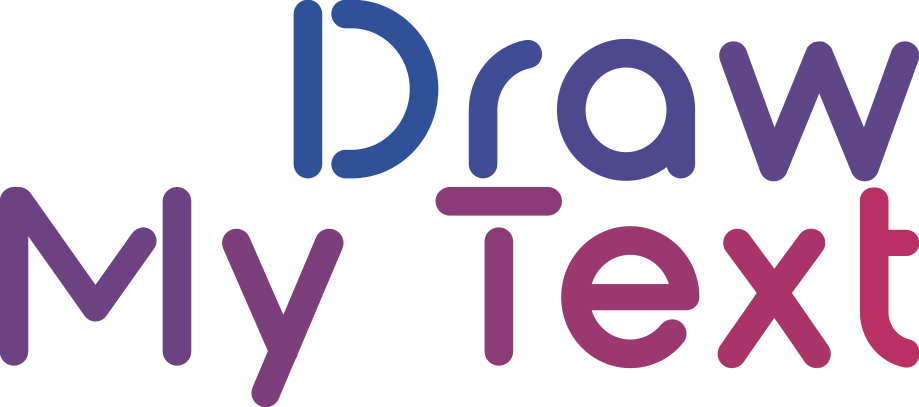
Generative AI and Copyright Law: What You Need to Know
February 2, 2024
The Rise of AI-Generated Art: What It Means for Traditional Artists
February 2, 2024Hello, fellow tech enthusiasts and curious minds! I’m thrilled to embark on an exploration of the dynamic and thought-provoking intersection between artificial intelligence and ethics, particularly focusing on the generative technologies that are reshaping the landscape of digital content. As we dive in, it’s my aim to offer you a comprehensive understanding of these advancements, all while maintaining a welcoming and accessible atmosphere. So, let’s set sail on this exciting journey together!
The emergence of generative AI has stirred the pot in ways many of us never anticipated. Chatbots, predictive text, and image generation are no longer the stuff of sci-fi – they’re here, and they’re raising important questions about their impact on content authenticity, creative integrity, and much more. But fret not! Together, we’ll uncover the nuances of these challenges and the steps we can take to harness the power of AI responsibly.
Understanding Ethical AI: A Primer on Generative Technologies
Generative AI refers to the subset of machine learning techniques that produce new content by learning from existing data. It’s like teaching a computer to be an artist, writer, or composer. Exciting as it may be, this innovation comes hand-in-hand with complex ethical dilemmas, challenging our conventional views on creativity and ownership in the digital domain.
Why should we care about the ethical implications of generative AI? It’s simple – these technologies have the potential to disrupt content creation at its core, impacting everything from the veracity of information circulated online to intellectual property rights. Failing to address these ethical conundrums could lead to far-reaching consequences, including a profound erosion of trust in digital content.
To set the stage for a more ethical approach toward generative AI, we must first comprehend the mechanics behind these tools and how they’re used. Let’s probe further into the applications and implications of these rapidly evolving technologies in the next sections.
The Ethical Implications of Generative AI in Digital Storytelling
The applications of generative AI are vast and varied, spanning from the innocuous to the potentially problematic. One area of particular interest is digital storytelling, where AI can churn out narratives that range from marketing copy to fictional tales. While the efficiency and creativity of these tools are undeniably impressive, one can’t help but ponder: what becomes of the human storyteller?
As we grapple with these changes, we’re forced to reconcile with the blurring lines between machine-generated and human-crafted content. The potential for misrepresentation, plagiarism, and dilution of original thought is palpable. Therefore, the responsible development and use of generative AI must prioritize transparency, ensuring users can distinguish between man and machine.
Let me underscore the paramount importance of upholding values such as authenticity and integrity within the digital realm. It’s not just about the “can” of technology, but the “should”; it’s about navigating the delicate balance between innovation and ethics to enrich the content landscape without compromising our cherished principles.
Embracing the New Wave: How Generative AI Can Enhance Content Creation
In the midst of such perplexing ethical terrain, it’s crucial to acknowledge the positive potential of generative AI. When wielded with care and consideration, these tools can be mighty allies in the content creation process. They can amplify human creativity, offer novel perspectives, and even facilitate the generation of ideas that transcend conventional thought boundaries.
To illustrate, let’s consider the realm of visual content. Platforms like the DrawMyText text-to-image generation service leverage the potent capabilities of generative AI to transform textual descriptions into vivid images. With features such as high-resolution outputs and diverse style options, it’s a testament to how technology can serve as a conduit for human imagination, not merely a replacement.
And while you’re capturing the wonders of generative AI, why not immerse yourself fully? If you find this convergence of art and technology as fascinating as I do, consider subscribing to DrawMyText. With competitive pricing and innovative features, it offers an enriching, accessible way to breathe life into your ideas. Check it out and see where your creativity takes you!
Navigating the Ethical Maze: Guidelines for Responsible AI Use
In an ideal world, the deployment of generative technologies in content production would always align with ethical standards. But we live in a complex reality, and thus the onus falls on us to sculpt guidelines that ensure responsible AI use. How do we do this? Through collective dialogue, policy formation, and adherence to best practices that respect both human values and technological advancement.
Industry alliances like Partnership on AI are pivotal in this respect, fostering a shared understanding among stakeholders and standardizing ethical practices. By incorporating frameworks for accountability, transparency, and user empowerment, we pave the path for AI that not only innovates but also inspires trust and ethical integrity.
Remember, the journey of managing generative AI within the bounds of ethics is ongoing and dynamic. It demands vigilance, adaptability, and a steadfast commitment to the core values that define our societies. This delicate dance between progress and principles is the cornerstone of ensuring that our digital future is both bright and benevolent.
FAQs on Ethical AI and Generative Technologies
What is Ethical AI?
Ethical AI refers to the practice of designing, developing, and deploying artificial intelligence in a manner that aligns with widely accepted moral standards and values. It emphasizes fairness, accountability, and transparency, aiming to mitigate biases and prevent harm to individuals and society.
How do generative technologies impact content authenticity?
Generative technologies have the potential to blur the lines between original and synthesized content, making it challenging to distinguish between what is genuine and what is generated. This can affect content authenticity, especially when such technology is used without proper disclosure or ethical considerations.
Why is transparency important in the use of generative AI?
Transparency is crucial because it allows users to understand and trust how AI systems make decisions and produce content. It’s a key factor in building accountability, preventing misinformation, and ensuring that AI tools are used responsibly and ethically.
Can generative AI coexist with human creativity?
Absolutely. Generative AI can augment human creativity by providing tools and insights that enhance the creative process. It’s not about replacing human artists or writers, but rather about collaborating with them to create new forms of expression and innovation.
What steps can creators take to use generative AI ethically?
Creators can use generative AI ethically by being transparent about its use, ensuring that generated content does not violate copyright laws or mislead audiences, and by considering the broader social implications of their work. Engaging with ethics-focused organizations and guidelines can also help maintain ethical standards.
Conclusion: Walking Hand in Hand with AI into the Future
As we conclude this journey through the intricacies of ethical AI and the impact of generative technologies on digital content, it’s clear that the path we tread is marked with both opportunities and cautionary tales. The allure of these tools is undeniable, but so is the responsibility that comes with wielding them.
It’s a collective adventure, one where every creator, user, and enthusiast holds a stake. By embracing ethical principles and nurturing a culture of informed and conscientious use, we ensure that generative AI serves as a force for good. Together, let’s foster a future where technology amplifies our best traits and creativity knows no bounds. Thank you for embarking on this exploration with me, and remember, the conversation around ethical AI is always evolving. Let’s stay curious, stay engaged, and, most importantly, stay connected to the values that define us.
If you’ve enjoyed this deep dive and wish to stay ahead of the curve in the generative AI space, don’t forget to subscribe to updates and information that can spark your next breakthrough. Who knows what wonders tomorrow’s AI might reveal? Until then, keep creating, keep questioning, and keep championing the ethical use of technology. 😄🌟
Keywords and related intents:
1. Keywords: ethical AI, generative technologies, digital storytelling, content creation, artificial intelligence, machine learning, transparency, creativity, authenticity, intellectual property
Search Intent: Understand the ethical concerns associated with AI in digital storytelling and content creation.
2. Keywords: ethical implications, generative AI, impact, content authenticity, creative integrity
Search Intent: Explore the impact of generative AI on content authenticity and creative integrity.
3. Keywords: machine-generated vs human-crafted content, misrepresentation, plagiarism
Search Intent: Investigate the differences and potential issues between machine-generated and human-crafted content, including misrepresentation and plagiarism.
4. Keywords: generative AI applications, ethical approach, technology mechanics
Search Intent: Learn about the various applications of generative AI and how to approach its use ethically.
5. Keywords: generative AI, visual content, text-to-image generation, DrawMyText
Search Intent: Discover how generative AI is used in visual content creation and text-to-image services like DrawMyText.
6. Keywords: responsible AI use, guidelines, policy formation, best practices, Partnership on AI
Search Intent: Find guidelines and best practices for responsible use of AI in content production, including insights from organizations like Partnership on AI.
7. Keywords: Ethical AI definition, fairness, accountability, transparency
Search Intent: Seek a clear definition of Ethical AI and its core principles of fairness, transparency, and accountability.
8. Keywords: generative AI transparency, trust, decision-making
Search Intent: Understand the importance of transparency in generative AI for building trust and accountable decision-making.
9. Keywords: generative AI and human creativity, collaboration, innovation
Search Intent: Learn how generative AI can coexist with and enhance human creativity through collaboration and innovation.
10. Keywords: ethical use of generative AI, copyright laws, social implications
Search Intent: Find steps and considerations for creators to ethically use generative AI in compliance with copyright laws and social implications.
#ethical implications of generative ai
#Understanding #Ethical #Impact #Generative #Technologies #Digital #Content


